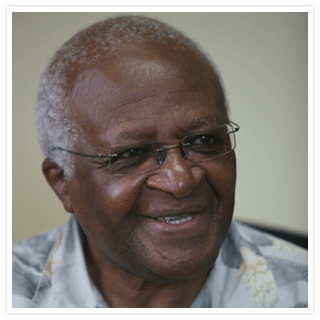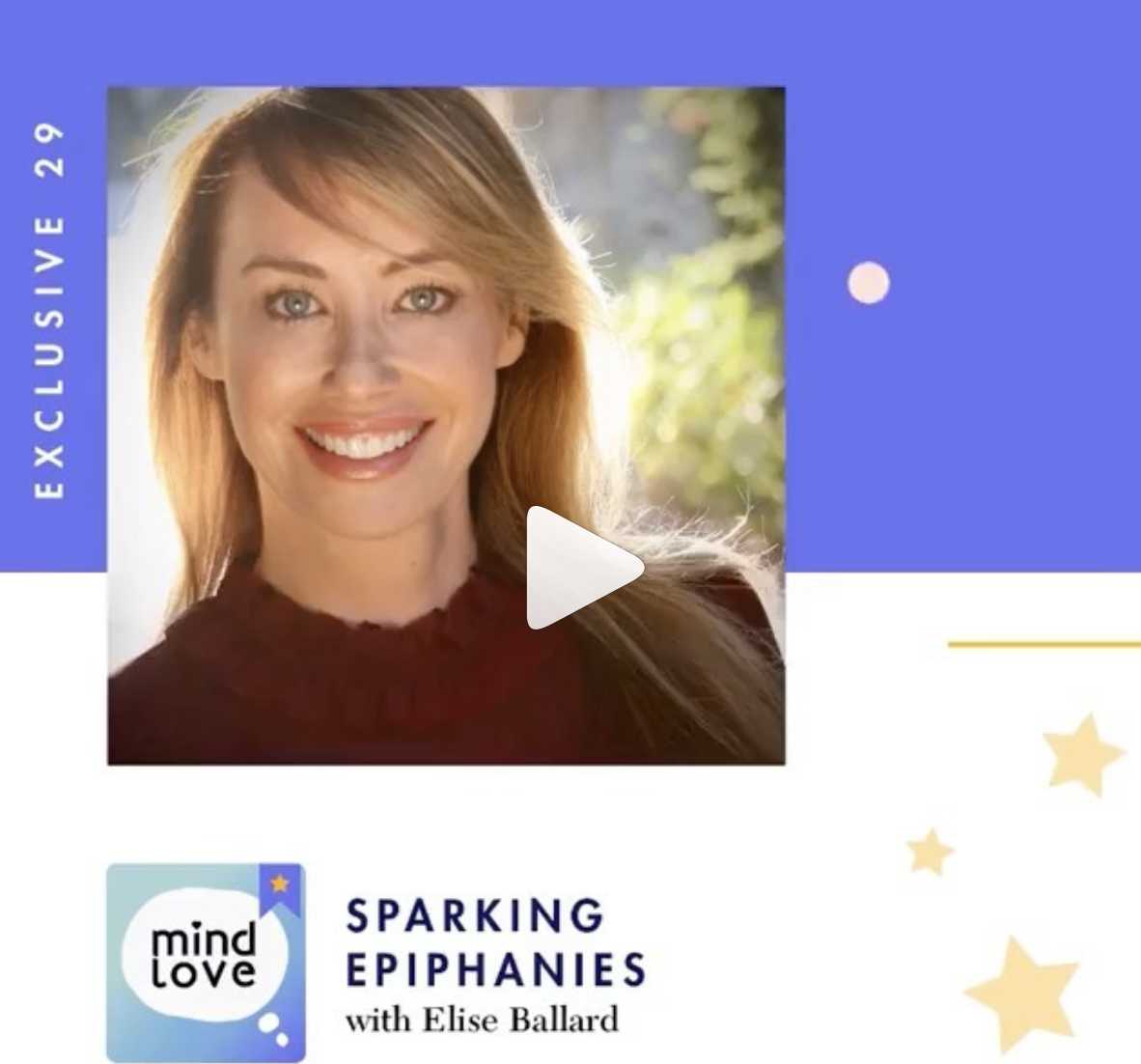
“God loves us all, no matter what. There is no one in this world who is a lost cause.”
Desmond Tutu was the first Black South African Anglican Archbishop of Cape Town, South Africa, and was then Archbishop Emeritus. He became known worldwide during the 1980s as a key opponent of apartheid and was the chair of the Truth and Reconciliation Commission, promoting restorative and reconciliatory rather than retributive justice for human rights violations perpetuated during the apartheid era and in the violence following its abolition. In 1984, Tutu became the second South African awarded the Nobel Peace Prize. He was also awarded the Albert Schweitzer Prize for Humanitarianism, the Gandhi Peace Prize in 2005, and the American Presidential Medal of Freedom in 2009. Archbishop Tutu and his wife, Leah, are the parents of four, and in 1998 they co-founded the Desmond Tutu Peace Centre “to encourage and inspire future generations to commit themselves for world peace.” He also authored several books of his speeches and sayings, including The Rainbow People of God: The Making of a Peaceful Revolution. He lived in Cape Town and tirelessly campaigned for human rights and peace through nonviolence worldwide until his death on December 26, 2021. (www.Tutu.org)
The Interview
It was a dream come true for me to interview a Nobel Peace Prize winner, but that it was Desmond Tutu was even more special because of an article I’d read about him that helped change my life and led to another interview that is in the book. His accomplishments speak for themselves, but when I heard from Linda Biehl at the Amy Biehl Foundation (see the “New Directions” section of the book and Linda Biehl’s page here on the website) just how kind and wise he is and how much he personally helped them, I knew he was someone I wanted to include in the project. Given the Archbishop’s schedule, I was extremely lucky and grateful to secure an interview. He just happened to have a cancellation, otherwise I would have had to wait at least a year. Staying up until 3:30 a.m. to speak with him was one of the easiest things I’ve ever done; I couldn’t wait to hear his greatest epiphany. I was expecting a remarkable story about a particular moment in his incredible life. But, as happened so many times in the course of my interviews, my expectations were surpassed in surprising ways. His epiphany underlies his center’s vision:
“A world committed to peace. A world in which everyone lives together as family, and everyone is loved, heard, cared for and unique. A world in which everyone matters, and the essential good in everyone is manifested.”
The Epiphany
There is no one in this world who is a lost cause. ~Archbishop Desmond Tutu
I’ve had quite a few moments in my life that I would consider an epiphany—an opening, or a revelation that enables you for a moment to glimpse the glory of God, or the glory that is God. My greatest is the realization that God loves us all, no matter what.
I was teaching at Emory University from 1998 to 2000. At the end of my teaching stint, the students decided they were going to give me a plaque, and they used a play on words. Instead of “Nobel” they called it a “Noble” Prize, and on this plaque it read: “A Noble Prize for preaching (even if it is the same sermon).”
It was funny, and they did this because in my teaching, I was constantly reminding them that I believe the epiphany that you really want to have in life is: God loves you, first up, no matter what. I would say my epiphany about this has been truly an extended epiphany. My awareness of the free, gracious love of God has been cumulative over many years as I’ve pondered and deepened my understanding of the magnitude, significance, and truth of this.
I learned and heard about God’s love for us, beginning as a child, of course, but several instances and parables in the Bible have struck me more deeply throughout the years to help me grow and reinforce and understand this Divine Love. In the Old Testament, I came to realize that God loves and chooses the Israelites as his Chosen People and takes them out of Egypt. But they had not done anything to deserve being chosen. When He gave them the Ten Commandments, He gives them after the Exodus from Egypt. You know? So it’s not “Keep my laws so that I will love you,” but it’s “Keep my laws because I love you—my law is to enable you to express your gratitude.”
And when you look at the New Testament, there are many things, especially Romans 5:8, where Paul says, “Whilst we were sinners, Christ died for us.” That is quite something to think about.
Later, I began to understand the parables better, such as the one of the lost sheep where the Good Shepherd leaves ninety-nine perfectly well-behaved sheep to go and look for the lone troublesome one. Often we spoil this lesson in most of our churches because we show Jesus carrying a fluffy little lamb, and fluffy little lambs don’t stray from their mommies. It’s the obstreperous old ram that strayed, and that’s the one that the Good Shepherd invests all of those resources in to try to win back.
Again, you see, God loves us no matter what—this kind of Divine Love is incredible. Having this knowledge and understanding of this love is something that just goes through any walls you might have or perceive. You truly know that God has no enemies. Even the worst of us in our communities is a beloved of God, and that has taught me to remember that there is no one in this world who is a lost cause. There is no one that I can or you can or anyone can declare firmly, “You are going to hell.”
An epiphany is God seeking to draw us to God. St. Augustine said, “Thou hast made us for Thyself. And our hearts are restless until they find their rest in Thee.” If we want true, extraordinary fulfillment, our fulfillment comes only from God, the Infinite. Divine Love is incredible. It’s just mind-blowing.
***
Behind the Scenes of Desmond Tutu’s Interview









